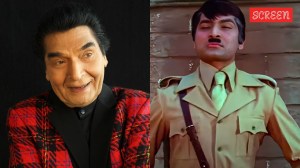A profile in quiet courage
On December 5, Bhopal’s Rabindra Bhavan witnessed an unusual event.

On December 5, Bhopal’s Rabindra Bhavan witnessed an unusual event. Rashida Bee and Champa Devi Shukla, two women survivors of the Bhopal Gas Tragedy, announced the first ‘Chingari Award for Women Against Corporate Crime’. This year’s awardee was Mukta Jhodia, a 45-year-old tribal woman leader from Sriguda Goudaguda in Orissa’s Rayagada district. She was being recognised for her relentless battle against the Hindalco-led Utkal Alumina’s bauxite mining and processing project in Kashipur, Orissa. The audience, consisting of the gas tragedy survivors of the world’s worst industrial disaster that took place in Bhopal on the night of December 2-3, 1984, along with friends and well-wishers, applauded the unique nature of the award.
Rashida Bee and Champa Devi, who had been awarded the Goldman Environment Prize — worth $125,000 in 2004, have set up this annual award, which consists of a trophy, citation and prize money of Rs 50,000. They wanted it as a means to recognise women who have resisted or have helped organise resistance to corporate and government wrongdoing. A six-person all-women jury, led by Mahashweta Devi, screened the ten nominations for this year and short-listed four women from different parts of the country.
As Mukta Jhodia climbed on to the stage and turned to face the flashlights, one saw a frail, diminutive, shy tribal woman transform herself into a gritty leader, who had shown rare commitment to a cause despite enormous personal risk and hardship. Some 60,000 people in her region faced the danger of getting displaced and the villages there stood to lose 75 per cent of cultivable land in the area because of the mining activities. Mukta has been in the forefront of a resistance movement, which began in 1995 and has successfully organised chakka jams, dharnas, road blockades.
Given this background, Mukta Jhodia’s words at the award ceremony have great resonance: “The award will strengthen the movement, which is going through a critical phase. The state government is spreading terror by arresting leaders and using police repression to divide villagers. The peace and harmony is lost. In the year 2000 in Maikanch, three tribal men were killed during a peaceful demonstration. When I and my fellow activists refused to give information on our leaders, the police beat us up.”
Despite false charges levelled against her and other members of the Prakrutik Sampad Suraksha Parishad, she continues to inspire the villagers with her fiery speeches and her indefatigable energy that takes her across villages through rough terrains — sometimes in the dead of night to avoid arrest — so that her people can unite against the violation of their human rights. For Mukta Jhodia, ‘bheeta mati’ — the motherland — is the natural heritage and property of her people. For its forests and its rivers, she is willing to sacrifice everything.
The writer is a fellow at Nehru Memorial Museum and Library Teen Murti





- 01
- 02
- 03
- 04
- 05

























